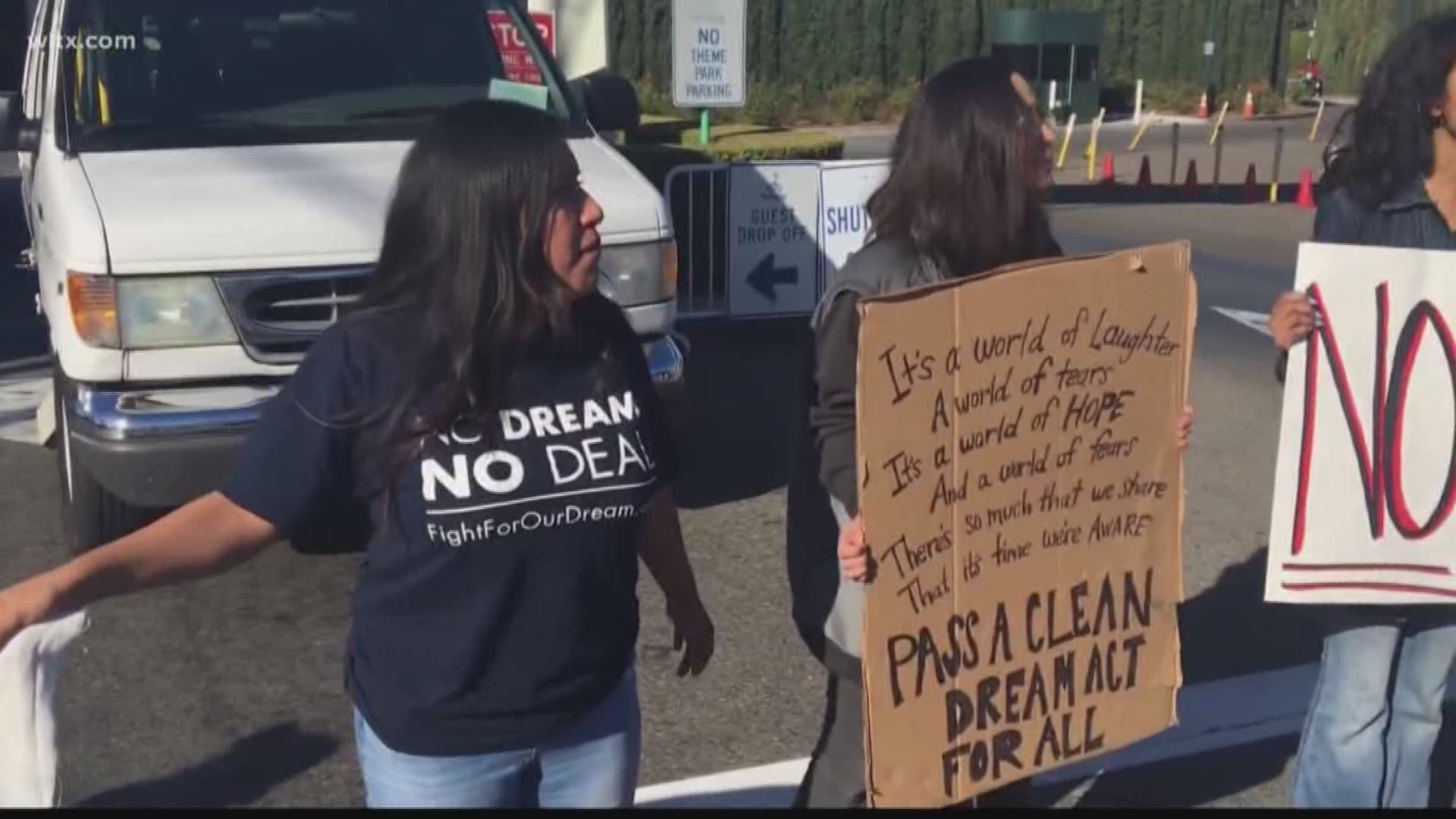Columbia, SC (WLTX) - During a briefing with White House Chief of Staff john Kelly, President Donald Trump walked in, and, for the first time, he said he is open to a pathway to citizenship for all qualified DACA recipients, otherwise known as Dreamers.
Trump said a 10 to 12 year pathway to citizenship would also incentivize good behavior.
DACA, or Deferred Action for Childhood Arrivals, is an Obama Administration executive order that allowed some children who were brought to the country illegally to get a renewable work permit and be deferred from deportation. Last fall, President Trump announced the program will be allowed to expire in March, and called on Congress to create a long-term solution for the 800,000 who were part of the program.
Some Dreamers believe while the latest development appears to be a positive step, they remain skeptical that the government will still be able to come up with a comprehensive plan.
News19 spoke with two Midlands Dreamers to better understand how they live their lives under DACA, and why becoming a U.S. citizen isn't as simple as just getting in line.
Alondra Mendoza, of West Columbia, is about to celebrate her 23rd birthday. She moved to South Carolina from Jalisco, Mexico, when she was 6.
"When I first got it [DACA] I was still in high school," Mendoza said.
She is one of 6,400 DACA recipients in South Carolina.
"While you have DACA, you have everything you need, but once DACA expires, no license, your social's no good," she said. "You go back to the status you used to have."
Every two years, Dreamers must renew their DACA application.
"Me with DACA, I have no path to citizenship," she said.
Because of the uncertainty of the program in late 2017, Mendoza didn't renew until late October. Her DACA expired in December.
The amount of applicants to the program is so high, the approval process takes months. Mendoza saved up and worked overtime in advance to be sure she and her mother would have enough money.
"I was working seven days a week, 12 hours a day. It was two months that I went that way," Mendoza said. "If I tell you a list of jobs I had before I could do anything with DACA, it was construction, field work, picking up the vegetables, packing the vegetables, cleaning services."
Work permits under DACA help recipients get better paying jobs, but for Mendoza, achieving her dream of becoming a nurse isn't possible in South Carolina. She also served as an interpreter at Palmetto Health Richland for a year.
"I eventually realized once I graduated, I wasn't going to be able to be licensed or get any type of certificate that could actually let me practice as a nurse because with the laws here, with the permit we have, we're not allowed," she said.
Ernesto Hernandez, of Rock Hill, is an artist (www.Facebook.com/artworkbyernesto) and a general manager at two restaurants in Charlotte. He says, while a reform could help Dreamers become citizens, it inevitably would break up families.
"It does help some people, but it's going to hurt a lot more people as well," Hernandez said. "Especially families with young children. The children can stay, but say you're 13, 14, 15 and you stay in this country and your parents have to go back to wherever they're from. Then what happens to you? You can't be on your own at the age of 13, 14, 15."
Hernandez is from Nayarit, Mexico. His parents brought him to the U.S. before he turned 1.
"People think we take advantage of the system and we don't," he said. "We don't get any help from the government. There's no food stamps. We don't get any special treatment. We have to pay our own way just like everybody else. What's really bad about what's happening is that even though we contribute to society with taxes and creating jobs, all the money we put back into the system, we don't get it back."
For Dreamers like Mendoza and Hernandez, their lives remain in limbo.
"What are we supposed to do? Go back into the shadows? We were in the shadows for so many years, and now that we're here, what are we to do now? We have to be optimistic, and we'll continue to do that," Hernandez said.
With a clean Dream Act, Dreamers say it will create a pathway to citizenship.
Until that, or a comprehensive immigration plan, comes to fruition, 800,000 lives nationwide are in the hands of lawmakers in Washington.
"People say, 'Get in line'. There's not a line for certain people," Mendoza said. "Me with DACA, there's not a line for me. If they don't do nothing with DACA and it just stays the way it is, I'll have DACA forever and that means every two years I have to renew running the risk of, 'Hey, we're delayed. You're gonna be without a job'."
Attorneys with Appleseed Legal Justice Center say isn't not as simple as Dreamers getting in line to become citizens. They say an easy path for citizenship doesn't exist. Marrying a citizen doesn't always work, and employers won't always sponsor a Dreamer if their skill set isn't up to par.
If the Dreamer had no legal status when they turned 18, attorneys say immigration law has an issue that the individual lacked status as an adult. Many Dreamers had no idea they were undocumented until they reached adulthood and searched for a career.
Each citizenship application is unique; Candidates can sometimes wait more than 20 years to become a U.S. citizen.

